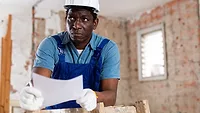Is Franchising Right for Me? Lesser Considered Options are No Less Important
In Part 1, Two Industry Experts Share Insights on Navigating Franchising vs. Independent Ownership in the Restoration Business

Image credit: studio-fi /iStock / Getty Images Plus via Getty Images
Over the past decade, the balance between independent and franchised restoration businesses has shifted significantly. In 2014, large franchises dominated the market, but today, there are more independent and franchise restoration companies than ever before, with an overwhelming amount of information available to potential owners.
In Part 1 of this two-part series, we talk to two experts—Jeff Diem, owner of Elkmont Estimates, and Ricelli Mordecai, owner of Sales Booster Solutions—who bring over 30 years of combined restoration industry experience. With backgrounds in consulting, franchise ownership, and independent businesses, they tackle some of the lesser-known considerations when deciding between franchising or going independent.
When making this decision, it's essential to look beyond the basics. Jeff and Ricelli dive into important, often overlooked factors, such as brand recognition, local market dynamics, and the support systems available for each business model.
What is an important, but infrequent consideration when deciding to go independent versus purchase a franchise?
Ricelli: It’s like a marriage! Opening any restoration company is a big commitment; a commitment that requires sacrifice, dedication and financial investment. Similar to a marriage, you need to be clear on WHAT you want and WHO your partner will be. Having been a part of the restoration industry for almost 2 decades, I’ve worked (directly and indirectly) with hundreds of companies, both independent and franchisees. I’ve seen the good, the bad and the ugly, and I’ve seen firsthand that what makes one person happy in a particular business model has someone else heading for the door and quitting. Just like with any relationship, the decision to join a franchise system or operate as an independent restoration company takes research and consideration of various cost-benefits. We’ve answered many questions and dilemmas that we see regularly affecting our clients which may assist you in your decision making process. Remember: not every franchise system offers the same services and support and this is to be used as a guideline for your research. Having been involved with various franchising groups in our industry, both at the franchisor and franchisee level, I learned a valuable lesson: if you don’t do your due diligence, your WHY (you joined) can quickly turn into your WHY NOT (to stay).
Humans are complex creatures, most operating from emotions. In business and in life, it is not uncommon to view our interests through colorful lenses, later to realize that what intrigued us is not as bright and colorful as we thought it to be. And that is when we complain, whine and then quit.
The root of this comes from holding expectations which exceed reality, and when it comes to the question of joining a franchise system or going independent, you need to know that what you expect is aligned with what you will get: whichever choice you make.
Sometime ago, as I was onboarding a new restorer who had just joined a franchise group, he became quite upset when he realized he’d need to invest money on acquiring customers locally. “Wait, so you are saying that I will have to pay plumbers a referral fee? If that is what I have to do, then why in the world would I have joined a franchise group?” Though there was merit in his frustration, I had to turn his question around and ask him: “So, why did you join?” That particular owner joined the group with the purpose of obtaining program work - jobs that come to the franchisor through their various national or regional agreements with insurance careers and other accounts. But he failed to investigate if those programs were available in his marketplace: his WHY became his WHY NOT.
Jeff: Know yourself and know if you can actually follow a system, not simply say you can follow one. As someone who has been an employee and entrepreneur, I have learned that I am difficult to manage. I much prefer being a leader, forging my own path, and following my instincts in decision making. As a franchise owner, I sometimes found it difficult to simply follow the franchise model. For some individuals, there is a sense of security following a defined program and following their franchisor’s guidelines. For others, such as myself, it was difficult to simply follow the rules, stay in line, and not try to improve the system where I found deficiencies.
From my experience, the larger and more mature the franchise system, the less ability the franchisee has to make meaningful changes at a large scale. Conversely, for those that feel more secure within the confides of the franchise guardrails, the smaller and newer franchises are often more willing and able to listen to their franchisees and quickly adapt to new changes. This is a bit like how the McDonald’s Egg McMuffin was invented by a franchisee in 1971. Try doing that today with the modern McDonald’s having over 36,500 locations! https://corporate.mcdonalds.com/corpmcd/our-stories/article/egg-mcmuffin-history.html
How does Brand Recognition affect a restoration business?
Ricelli: Brand recognition is an important part of joining any franchise, and you should have healthy expectations about what this means. For your customer, restoration is situational, it is not a lifestyle. So expecting that your marketplace would treat you like a McDonald’s or Burger King when most people do not even know what a restoration company is or does, is unrealistic. If brand is the reason you are choosing a franchise system, how about visiting some local insurance agencies and asking them what brands come to mind when they think of restoration work? You will be surprised to learn that, in some areas, the brand which stands out might not be part of a big group, they might simply be the local guy who hired a sales trainer, business coach and strategist and developed relationships from the ground up. Remember: for good or for bad, your brand locally will be defined by the way you and your team treat and serve the community.
Ask yourself these questions:
- What does this brand mean to my local marketplace?
- What agreements do they have with carriers and how would that impact my ability to stay competitive and sign jobs?
- Are there other franchisees from the same brand around? How are they perceived? - this one is quite important as some franchise systems might have several mini territories around yours and what is now being sold to you as your territory might have been open territory for other franchisees to pursue. This can be helpful if 1) they represented the brand well, 2) there is a clear opportunity for you to market in the territory and previously established relationships will not be favored over your right to earn jobs in the territory.
What to expect from the Franchise model:
- Logo, artwork, website design, brochures and digital marketing content
- Local, regional and national commercials
- Participation/presence in industry events to drive brand awareness
- How is it paid: marketing/brand budget which might or might not be included on your royalties
What to expect from the independent model:
- Hire SMEs (subject matter experts) for art, brand and content creation
- Define what you want your brand to be
- Pay upfront for marketing service
Related Reading
What support is available to me?
Ricelli: One of the greatest advantages of joining a franchise group is the opportunity to start a business from scratch and learn the technical side of the business. I’m part of several restoration groups on Facebook and it baffles me when someone writes: “I want to open a restoration business. What training programs should I go after?” Or, “how do I learn how to mitigate a loss?” If you don’t know these answers, you’re not yet ready to open your business. As with any business, there are different motivators influencing the decision to start, but if you don’t know how to deliver on the services and see this industry as an opportunity to earn money, a franchise system may be right for you.
Not every restoration franchise system is built the same. The amount of training available and the trainers themselves can be the difference between success or frustration. During my Sales Masters Bootcamp training I often tell people that frustration comes from having expectations which exceed reality. I also share with my trainees that if you want to be inspired, you need to be both motivated and informed. Throughout the years I have heard franchisees saying that they went to a training, felt great about it, but after a while they felt like they lacked the tangible strategies needed to get things going - they lacked information
Jeff: There are several components of “support” to be considered such as training, the business model, and an individual’s ability to receive the support provided. Before I begin, here are my definitions of restoration franchises. Larger systems systems such as ServPro (Blackstone), Service Master (Roark Capital), Paul Davis (First Service Brands), 1-800-Water Damage (Belfor) and Rainbow Restoration (KKKR & Co.) have hundreds, if not thousands, of locations and are all either publicly traded or owned by private equity (PE) firms.
There are also numerous smaller privately owned brands such as such as 911 Restoration, Restoration 1, Voda Restoration, United Water Restoration Group, All Dry, Dry Medic, etc.
Looking for a reprint of this article?
From high-res PDFs to custom plaques, order your copy today!










